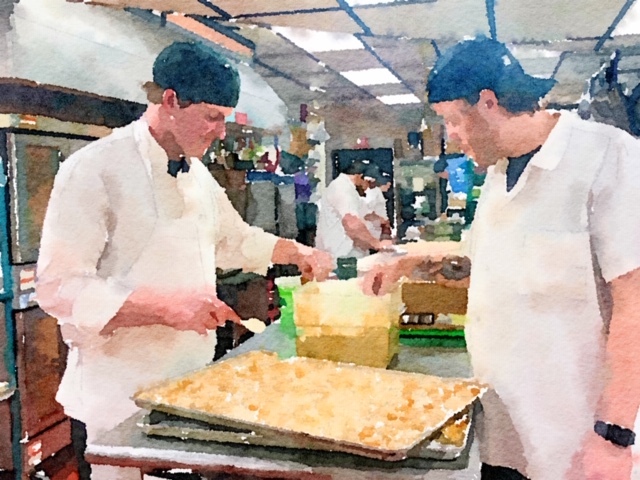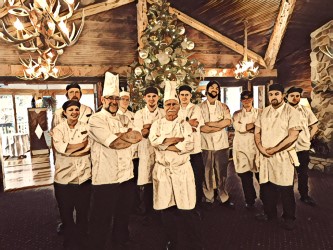
I vividly remember flying out of Buffalo, New York in 1971 for Army Basic Training at Fort Jackson. It was, ironically, my first time on a plane and considering that this was at the peak of the Vietnam War, I was doubly nervous. It had been my second year in college when in the first draft lottery – my number came up as 17. I managed to sign up for a National Guard Unit and at least felt that after “Basic” I could count on staying away from the jungle. Still, the unknown of what would await me in Columbia, South Carolina was un-nerving. Those next six months would help to solidify some important attributes and life skills that I still rely on today. In a nutshell – this training helped me to understand discipline, chain of command, dependability, teamwork, effort, and taking responsibility for your actions. I also knew that I was not destined to be a career soldier even though they tried to convince me otherwise.
“Self discipline is an act of cultivation. It requires you to connect today’s actions with tomorrow’s results.”
-Gary Ryan Blair
Working in a kitchen is closely aligned with the experience of being in the military. With this experience comes all of the positive and negative parts of that alignment – so don’t assume that all roads lead to enlightenment. Just as is the case in Basic Training – the kitchen helps individuals to understand discipline, chain of command, dependability, teamwork, effort, and taking responsibility for ones actions. These six understandings are critical in nearly every profession and help to set a positive course for success at any level in life.
I am one who believes that these attributes do not muddy the opportunity for any individual to be independent, to think creatively, and rise up against unjust or inappropriate behavior of others – in fact, they set the stage for a person to be all of that – if he or she so chooses. In that light – discipline, respect for the chain of command, dependability, teamwork, exceptional effort, and taking responsibility is the fuel for creative thought in and outside of the kitchen – this is what sets the stage for cooks to aspire to the position of chef and even the demands of ownership.
This is how (from my perspective) each of these attributes works for solid cooks and for well-rounded, successful individuals throughout their lives:
[] DISCIPLINE:
Behind every accomplished artisan is the discipline to work consistently hard at building the skills that are essential within their trade. Musicians, even those who thrive on improvisation, are advocates for the discipline of practice and holding true to the foundations of organized music. Painters are disciplined to understand the use and impact of color, light, depth of field, and texture. With this discipline they are able to interpret those factors in their own unique way. Athletes understand that a disciplined regiment of conditioning, memorization of structured plays, understanding of the rules of the game, and focused knowledge of how each player interacts is the key to success with the game. So too, is this process of discipline important to cooks and chefs. The discipline of knife cuts, cooking methods, sanitation, work habits, organization, understanding how ingredients interact, and building personal flavor memory is the foundation on which a career in cooking is built.
[] RESPECT FOR THE CHAIN OF COMMAND:
There can only be one person driving the bus or flying the plane. It takes dozens of others to make sure the vehicle is operational and able to point in the right direction, but the driver ensures that it arrives at its determined destination. Cooks know this is true, even when they may not fully agree with the drivers methods or demeanor – in the moment it is important to respect the role of each person and play his or her part properly. “Yes chef” is not a subservient response to an individual, but rather a sign of respect for the system. Anyone who has found themselves in the midst of a busy restaurant service with tickets driving through the printer, orders being called out at a frantic pace, pans pinging as they make contact with a flat top, flames jumping from the briquettes of a chargrill, and finished plates sliding down the pass – know how important it is to listen to the cadence of the chef who is standing tall at the expo station attempting to maintain a level of calm and ensuring that each plate is representative of the team. This holds true in most situations in life whether it is in the workforce, on the athletic field, or in the home.
[] DEPENDABILITY:
Without dependability – all else is lost. Success comes from respect and respect comes from trust. At the core of any need for trust sits the dependability that defines an individual. Show up, suit up, complete your tasks, and do so with expected standards of excellence in mind. This applies to every situation in life and is, by far, the most important attribute of a successful cook. Two, somewhat conflicting quotes come to mind:
“Just do your job.”
-Bill Belichick
Dependability means that others can trust that you will perform at the highest level, strive to be excellent, and always do so without question.
“Finesse”
-Thomas Keller
This simple word stands out on the wall of The French Laundry Kitchen – it silently proclaims that every cook must be trusted to take that extra moment to ensure that every part of every dish is executed with extraordinary attention to detail.

[] TEAMWORK:
The Need: So much of what we attempt to accomplish in life depends on others executing their tasks with the same commitment to excellence that drives us. Teamwork is an essential part of life.
The Importance: Any system is a composite of parts – each part is critical to the function of the whole. It is the dynamic of “team” in that system that allows a task to come to fruition.
The Joy: Individual accomplishments may feel rewarding, but until you have reached or exceeded a goal as part of a larger body – you will never know how exhilarating it is to win on the shoulders of others.
[] EXCEPTIONAL EFFORT:
Nothing of any merit is accomplished without effort and hard work. It is true that you get out what you put in. When you study highly successful people in any field, or simply those who are successful in life as a parent, spouse, friend, son, or daughter – it is the effort that those individuals put into the process that leads to success.
[] TAKING PERSONAL RESPONSIBILITY:
Don’t delegate your attitude.
Don’t expect others to motivate you.
Understand your weaknesses, own up and work on overcoming them.
When you screw up – don’t point your finger – look in a mirror
It takes way too much energy to pass blame to others when simply admitting your responsibility and taking control is far more rewarding.
PLAN BETTER – TRAIN HARDER
Harvest America Ventures, LLC
Restaurant Consulting
www.harvestamericacues.com BLOG

Leave a comment